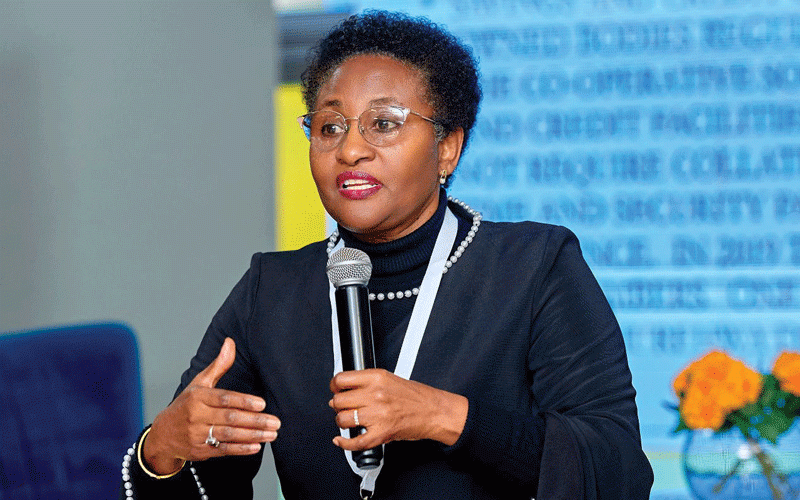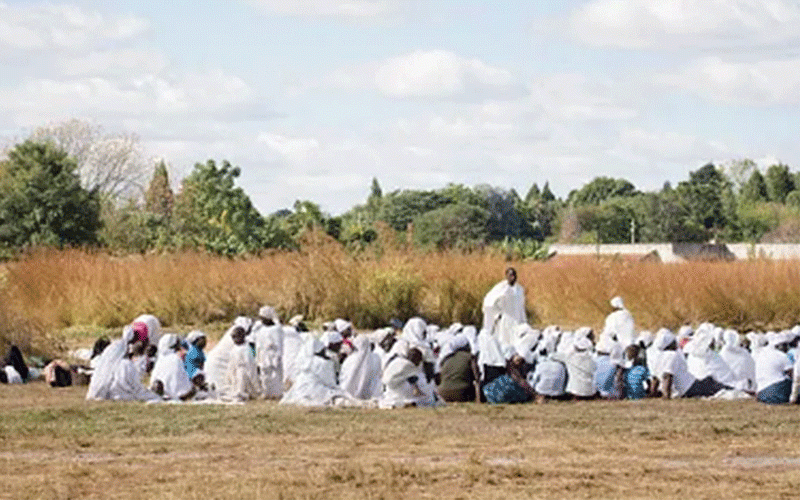
THE famous Maya Angelou once said: “If you’re going to live, leave behind a legacy. Make an impact on the world that can never be erased.”
In this column, I (JN) interview an extraordinary woman who is intentionally making an impact on the world.
Her name is Sarah Nyathi (SN). Her palpable aura of intentionality is always noticeable.
She co-founded Harvest House International, leads global ministries, empowers women, mentors young men and impacts lives through her teachings.
JN: What’s your definition of “lasting impact”?
SN: My definition of lasting impact is building either an organisation or developing people who will have generational influence.
I think lasting impact is all about lasting influence.
Many organisations and churches have emerged over the years, and often, you will find that after the leader passes on, those organisations struggle and flounder because there hasn’t been a focus on building lasting influence — something that transcends generations.
- Australia floods worsen as thousands more flee Sydney homes
- In the groove: Chiwoniso Maraire remembered
- Bosso search for elusive away win
- DYNAMOS coach Tonderai Ndiraya has backed his misfiring strikers to start banging the goals soon.
Keep Reading
JN: Having said that, what are the building blocks of lasting impact?
SN: I believe the first building block needs to be an intergenerational vision.
You need to have a vision that is not just limited to the next 10 or 20 years, but something that will outlast and outlive you.
The second essential aspect of that vision is communication.
How does a leader communicate their vision? By painting pictures.
Leaders must articulate a vivid image of the vision.
After that, they build organisational values around this multigenerational vision — a set of values that helps people understand and embody the mission.
I believe the job of a leader is to paint the picture of the destination.
It is imperative that leaders do not build personality cults because such cults depend entirely on the leader.
Everything revolves around their gift, charisma, and abilities.
But once they are gone, what happens? Leaders need to instil values that people can adopt and carry forward.
The third key element is building other leaders.
The visionary, chief executive officer or founder must cultivate leaders who understand and buy into the vision.
These leaders, in turn, disseminate that vision and values to others, enabling the organisation to move forward.
If you have avoided a personality cult and built capable leaders around you to whom you can delegate responsibilities, you are on your way to building a multi-generational or intergenerational organisation.
JN: Why are some leaders afraid to build more leaders?
SN: They are afraid because they build personality cults.
I believe this stems from either insecurity, a lack of understanding, or simply enjoying being the centre of attention.
Some leaders love to be the pivot around which everything revolves.
But at the end of the day, if everything is dependent on one person, that individual’s demise takes everything with them.
JN: What are some of the challenges you have faced in building a lasting impact?
SN: One major challenge is a lack of buy-in. Some individuals within the organization do not fully embrace the vision and direction.
While they are present in the organisation, they have their own personal visions they are trying to build and strengthen before they break away.
Instead of everyone focusing on the corporate vision, smaller splinter groups emerge, fostering their own aspirations rather than contributing to the organisation’s mission.
JN: Is there a way to align personal visions with the larger organisational vision?
SN: We have tried that. As an organisation, we have our vision, mission, and values, and we allow leaders to bring their personal vision into alignment with them.
When a leader demonstrates maturity, we permit them to plant a church, allowing their gifts and aspirations to flourish alongside the main corporate vision.
However, some personal visions inevitably diverge.
If a person does not feel fully committed to the corporate vision or believes the direction is not where they ultimately want to be, there is little an organisation can do.
Some individuals are simply not meant to be second-in-command.
They aspire to lead independently.
You may encounter employees who do exceptional work, but deep down, they know they will leave one day to build something bigger. You cannot suppress ambition.
JN: How can leaders identify and develop future leaders?
SN: Leadership development must be intentional. Leaders do not develop organically; there must be a strategic approach.
JN: What is your organisation’s intentional strategy?
SN: At Harvest House International, our primary strategy involves structured training.
We have a Bible school — a school of ministry — that has operated for nearly as long as the organisation itself. It serves as our training department.
Additionally, we conduct intensive training for pastors and leaders multiple times a year at regional and hub levels.
Each region has a regional board and every church or hub also has leadership boards dedicated to raising future leaders.
We are continuously engaged in leadership development, connecting with other successful church organisations and adopting best practices.
For instance, we closely collaborate with the United Denominations of Ghana — Lighthouse under Bishop Dag Heward-Mills — whose extensive leadership resources we incorporate into our own training programs.
At Harvest House, we offer structured courses such as a Certificate in Biblical Studies, a Diploma in Biblical Studies, and higher diplomas in pastoral, prophetic, and apostolic studies, culminating in an Excellence in Ministry programme.
An organisation without structures, systems, vision and values will inevitably collapse.
Just like families pass down values from generation to generation, organisations must also intentionally instil values to ensure continuity.
JN: Let’s talk about change. With artificial intelligence (AI) accelerating transformation, how can leaders keep up?
SN: That’s an excellent question. I am currently registering for an AI course to understand its impact better.
Sometimes, Christian leaders panic and vilify new technologies because they lack understanding.
My goal is to complete a seven-day programme to gain insights into AI and explore how we can use it as a positive tool in ministry.
Additionally, we have a strong media team led by an expert with a Master’s in International Communication and an MBA.
This individual has helped us establish a contemporary media presence across all social media platforms, assisting even older leaders like us in adapting to modern trends.
JN: What is your personal advice for someone who wants to leave a lasting, positive impact?
SN: First and foremost, Christian leaders must cultivate a solid relationship with God. Integrity is equally crucial.
Many churches and organisations today suffer from a lack of values.
I believe faithfulness and honesty will always stand the test of time.
Moreover, interpersonal skills are key. At the end of the day, ministry is about people.
- Jonah Nyoni is an author, speaker, and leadership trainer. Follow Jonah on Twitter @jonahnyoni. WhatsApp: +263 772 581 918
One of the most valuable things I’ve worked on as a leader is improving my soft skills.










